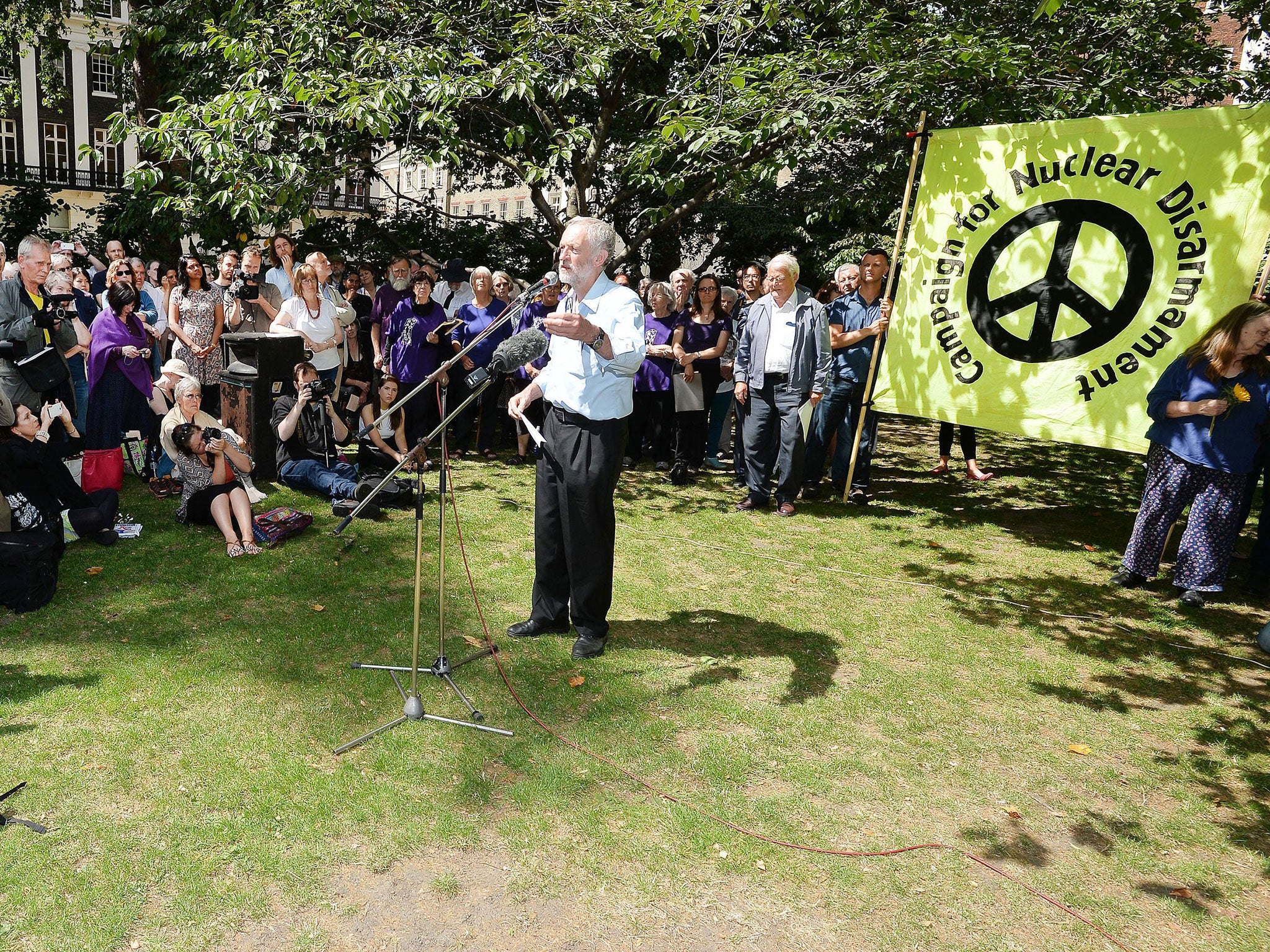Reds in my bed: Through the keyhole with Jeremy Corbyn's family
Two years ago I moved to a cottage in Wiltshire previously owned by Corbyn's family

Few people outside politics had heard of Jeremy Corbyn before May, though for a strange reason, I had. Two years ago I moved to a cottage in Wiltshire previously owned by his family. I deduced the last occupants must have been left wing from the ragged copies of the New Statesman piled up in the recycling, and the yellowing pages of The Guardian stuffed between beams to act as draught excluders – a novel use for that newspaper – which continue to do a good job.
David and Naomi Corbyn lived in this house from the 1970s onwards, and left it to their sons when they died. They were peace campaigners, who met during the Spanish Civil War. Like Jeremy, they didn’t use a car, and Mrs Corbyn would apparently ride a 50-mile round trip on her scooter to take food parcels to the women of Greenham Common. When she wrote a history of the village, she took a somewhat revisionist approach, airbrushing out the toffs and writing only about the workers.
Jeremy’s brother Piers is well-known for devising an alternative weather forecasting system, which the farmer here still uses. They were colourful figures, and clearly enjoyed the good life, growing vegetables, and keeping bees and hens.
Everyone round here has a Corbyn tale to tell, and if Jeremy wins, perhaps we’ll throw a party. David Cameron said it’s not about where you’ve come from but where you’re going to, but in this case I like where Jeremy has been. And Ma Corbyn would certainly be proud of where’s he’s going.
Salisbury Close encounters
Wiltshire is a peculiarly political place at the moment. In Salisbury, the peace of the cathedral close has been shattered by allegations that the ex-prime minister and prominent resident Ted Heath was a paedophile. It looks as if Heath’s private life could be yet another of those stories that everyone knew about but nobody acted on, like phone-hacking and Jimmy Savile. Or it could just be he was gay, at a time when that was awkward.
The broadcaster and writer Jonathan Meades grew up in Salisbury, and writes about its murky weirdness in his brilliant autobiography, An Encyclopaedia of Myself. When I went to interview him last year in Marseilles, he said Heath was known for visiting rough pubs, frequented by squaddies. He tells a revolting story in his book: “A visitor, waiting to see Heath and abandoned by the major-domo who had admitted him, went in search of a toilet. The one he found was “like an abattoir”. Its walls and floor were streaked with rivers of blood, not yet dry. Even in these free-speaking days, it’s hard to think how you would bring this up with your host.
Anyone who had a life …
Much sadness at Estepona in Spain where Cilla Black was due to have supper at the jaunty Robbie’s restaurant the night she died. It’s the kind of place that has framed pictures of 1950s movie stars on the walls, and Cilla’s favourite pink champagne was reportedly waiting for her on ice for her 10pm reservation.
You can’t beat old-fashioned glamour, the best example of which is Iris Apfel, the 93-year-old designer about whom a fascinating documentary, Iris, has been released. Her whole life has been about wearing outlandish clothes and over-sized glasses, though really the film is about mortality and the inevitability of death. As she admits, clothes, parties and glamour don’t matter a jot, but they’re a welcome distraction.
Eleven times table
Robert Kilroy-Silk has been curiously quiet in recent years. On his Twitter profile, he describes himself as a “retired broadcaster, politician and opinion prompter”, adding with a hint of menace: “And you haven’t quite seen the back of me yet.”
Now, I gather, he is selling his luxury Spanish mansion, an 11-bedroom palace on the Costa Del Sol. The asking price for the estate near Casares is €12m (£8.4m), rather a lot even if it does have two pools.
Kilroy-Silk once wrote a book about Marxism and his wife, Jan Beech, is somewhere left of Trotsky. When challenged at a drinks party how she justified the size of their home, she said: “The builders got the measurements wrong. They were supposed to build it in feet, not metres.”
So there were going to be 11 small bedrooms, which is obviously fine.
Driving force
England’s result in the World Cup last month should kick the new football season off to a good start. That’s the Women’s World Cup, of course, though most news outlets gave more coverage to the tennis, Formula One, golf, cricket, and whatever other male-dominated championships were on at the time. But the world is changing.
Carmen Jorda is a Spanish racing driver with ambitions to win the tournament. Not against Lewis Hamilton, but in a separate women’s championship, just as you get in tennis and in football. At the moment, her only option is to race against other men, but she is fighting for change.
“I think it will happen” she tells Formula Life magazine. “Bernie Ecclestone already supports the idea.” She adds that she became a racing driver because her father had two daughters, and “obviously he wanted a boy”. Some things you can do nothing about.
Simmy Richman is away

Join our commenting forum
Join thought-provoking conversations, follow other Independent readers and see their replies